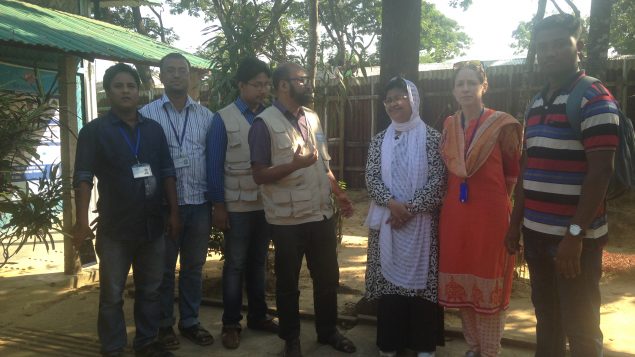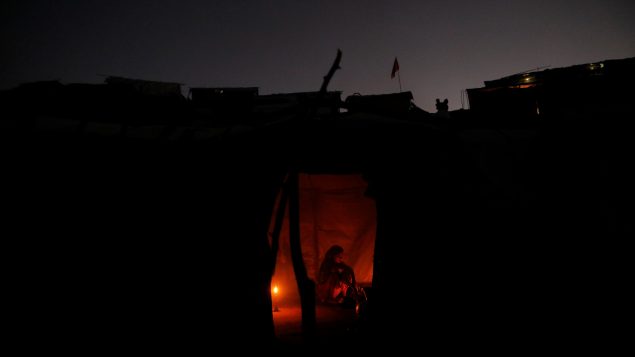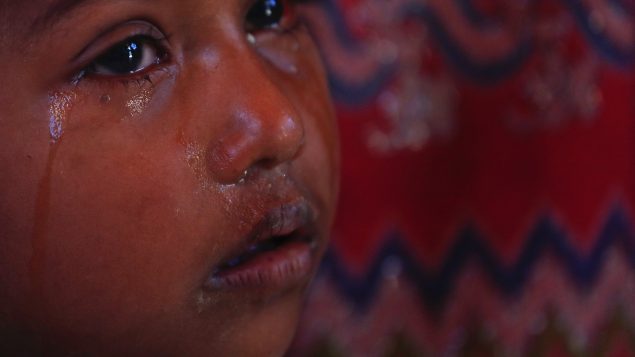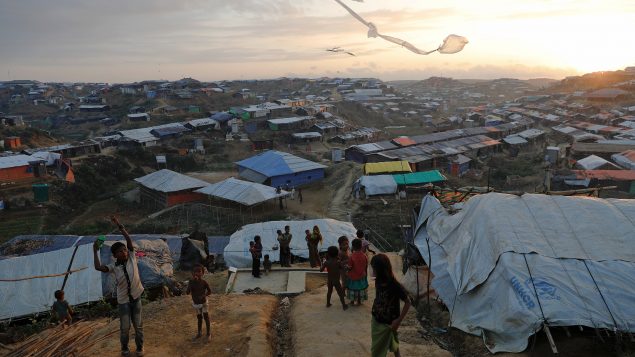As a palliative care pediatrician Dr. Megan Doherty is no stranger to death and suffering.
But her inability to do anything to ease the suffering of a little terminally ill Rohingya girl brought to a Bangladeshi hospital last year still haunts her.
Taslim, was a four-year-old Rohingya refugee suffering from eye cancer in one of the refugee camps scattered around Cox’s Bazar area in southeastern Bangladesh, where over 670,000 members of the persecuted Muslim minority have found refuge after fleeing their native Myanmar.
Doctors had operated on Taslim to remove the tumour but because she had no follow-up care her cancer returned, said Doherty, who works at the Children’s Hospital of Eastern Ontario and teaches at the Faculty of Medicine at the University of Ottawa.
(click to listen to the interview with Dr. Megan Doherty)
Listen
Dr. Megan Doherty (second from right) with Dr. Farzana Khan, co-lead for the Children’s Palliative Care Initiative in Bangladesh Project, and members of the Handicap International in the Kutupalong Refugee Camp in Cox’s Bazar, Bangladesh. (Photo courtesy of Dr. Megan Doherty)
Doherty and her colleagues were in Bangladesh at the end of November to visit the refugee camps as part of a research project into palliative care needs in the camps.
“When we saw her, she was having terrible headaches and pain, and we knew what she needed was palliative care and especially pain medicine,” Doherty said. “But we didn’t have any pain medicines in that region, in Rohingya camps that could treat her pain properly.”
In desperation, Taslim’s father took her to a distant government hospital. Like the health facility, the hospital could not provide adequate pain relief.
“She suffered terribly in pain and she passed away unfortunately without the right medicine and without anyone to provide her with palliative care,” Doherty said.
‘Neglected and forgotten’

A Rohingya refugee cooks dinner at Kutupalong refugee camp near Cox’s Bazar, Bangladesh December 4, 2017. (Damir Sagolj/REUTERS)
Taslim’s case illustrates an urgent need to develop a palliative care system to meet the needs of chronically or terminally ill Rohingya refugees, according to a report co-authored by Doherty called Neglected suffering: The unmet need for palliative care in Cox’s Bazar.
“We know from our report that the majority of these people are unreached by the usual humanitarian health system,” Doherty said.
“We find that this imperative to save lives, which is, of course, very important, often means that those who have serious chronic or life-threatening illnesses and cannot be cured are neglected or forgotten.”
Doherty and her colleagues found that very often people who had serious illnesses such as cancer were left unattended. Healthcare workers in humanitarian situations often lack the necessary training and sufficient resources to help these patients, Doherty said.
“Sometimes these individuals are ignored or sort of left for already dead because there is nobody who knows how to address their suffering,” she said.
Hidden suffering

A child cries at UNICEF medical centre at Balukhali refugee camp near Cox’s Bazar, Bangladesh December 4, 2017. (Damir Sagolj/REUTERS)
Nobody knows how many people in the refugee camps need this kind of care, Doherty said.
“These patients are the most hidden in society, they are often in the tents or in the dwellings, and they don’t come out, they don’t come to medical attention,” Doherty said.
“But we do know that it’s a significant issue and especially as the humanitarian crisis continues – because often these are protracted and last for many years – then the chronic diseases in that population who has been affected by that crisis will continue and will become more of a problem if not addressed.”
Essential package
However, there are effective, inexpensive solutions that can be implemented even where resources are limited, Doherty said.
The Lancet Commission on Palliative Care and Pain Relief has proposed an essential package which includes tools – medicines, equipment, and health and social care workers trained in how to help–for providing essential and affordable palliative care interventions in low-resource settings.
“Our biggest issue is persistent lack of awareness amongst humanitarian health partners that this is a problem and that was the main reason we set out to do this report, to demonstrate and raise awareness that these patients are there in the camps and they are suffering, and the health system is not reaching them,” Doherty said.







For reasons beyond our control, and for an undetermined period of time, our comment section is now closed. However, our social networks remain open to your contributions.